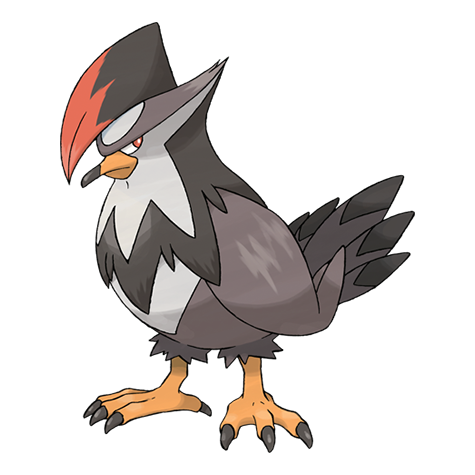I heard something to do with Nitrogen and …cow farts(?) I am really unsure of this and would like to learn more.
Answer -
4 Parts
- Ethical reason for consuming animals
- Methane produced by cows are a harmful greenhouse gas which is contributing to our current climate crisis
- Health Reasons - there is convincing evidence that processed meats cause cancer
- it takes a lot more calories of plant food to produce the calories we would consume from the meat.
Details about the answers are in the comments
The basic problem is that to get 1000 calories of beef, you need to feed the cow something like 10,000 calories. So growing a cow is actually growing an entire field of wheat/corn/etc., then feeding it to the cow, then eating the cow.
Farming all of those crops for the animals takes up a lot of land, consumes fresh water, produces wastes, and uses oil/gas (for farm equipment directly, or to produce things like nitrogen fertilizers) which produces co2. Cows also produce methane (that’s the fart thing) which is a bad greenhouse gas.
You could just eat the wheat/corn/etc. directly (most of the time) and skip the meat step therefore saving a massive amount of environmental impact.
Meat sure is tasty though.
I remember driving through Iowa and seeing vast fields of corn and learning that the majority of that corn was not even destined for human consumption. That kinda blew my mind.
You wanna know another fact? Not all corn can be consumed by humans. There is actually corn that can only be eaten by animals like cows.
Luckily there is still enough left over to poison the population with high fructose corn syrup
If America was a food, it would be sugar and high fructose corn syrup.
Plus is the fact that not all plants have the right amount of vitamins and minerals necessary to maintain the human body like meat does. Although it is possible, it does require research and monitoring to ensure that your getting all the nutrients you need. And yes, meat just tastes good.
What kind of bullshit are you peddling?
If you’re discussing complete proteins then all it takes is rice and beans. Not particularly difficult given that about half the world population survives on that without much meat.
Because you need considerably more resources to grow meat than you need to to grow a nutritionally equivalent amount of vegetables.
To learn more about the environmental impact of meat consumption, I recommend this Our World in Data article: https://ourworldindata.org/environmental-impacts-of-food
I would highlight this chart: https://ourworldindata.org/grapher/ghg-per-protein-poore?country=Pig+Meat~Beef+(beef+herd)~Eggs~Lamb+%26+Mutton~Grains~Milk~Other+Pulses~Poultry+Meat~Tofu+(soybeans)~Peas~Nuts~Groundnuts~Fish+(farmed)~Cheese~Beef+(dairy+herd)~Prawns+(farmed)~Tofu
For example, getting 100 g of protein from beef emits ~ 50 kg of CO2. Getting 100 g of protein from tofu only emits ~ 2 kg of CO2.
animals are fed parts of plants that people can’t or won’t eat. all of the studies about the ecological impacts ignore this fact and then attribute the water used to produce, say, cotton to beef.
This is simply not true. Globally, 77% of the land area that’s used for agriculture is used either by livestock or to grow food to feed to livestock (such as corn and soy). Only 23% is used for crops for direct human consumption (1): This makes sense intuitively: If I feed a cow 1 kcal of energy, it will create way less than 1kcal of energy to be consumed. In fact, beef has an energy efficiency of 1.9%. This means, for every 100 kcal the cow eats, you only get out 1.9 kcal (2). Otherwise, cows would defy the laws of physics. Do you really think that the 74 billion chicken, 620 million sheep and 330 million cattle that we slaughter each year for meat just are fed human-food leftovers? (3)
1: https://ourworldindata.org/global-land-for-agriculture 2: https://ourworldindata.org/meat-production#energy-conversion-efficiency 3: https://ourworldindata.org/meat-production#livestock-counts
Ask the cow what she thinks?
- Ethical reasons: hundreds of billions of animals are killed every year (not counting fish), after living a miserable and short life.
- Environmental: greenhouse emissions (CO2 and methane), deforestation for pastures, water pollution, are all caused by animal agriculture. If everyone went vegan we’d need only 25% of the land we currently use for agriculture.
- Health: there is some evidence that meat causes cancer, and convincing evidence that processed meat causes cancer. Also, the use of antibiotics for animals can lead to the development of antibiotic-resistant bacteria.
Cow farts are methane, which are a more aggressive form of greenhouse gas, though with shorter lifespan.
people have lots of different reasons. some don’t like the idea of killing a big animal with feelings and expressiveness. some because of how farms abuse or torture animals in some countries. some think Anibal farming is worse for the environment. some have religious prohibitions. some think it’s bad for your health. some people don’t like the taste or can’t afford it but don’t want people to think they are weird so they tell people they have a principled argument for it.
Agreed up until the last part. I think most people would accept “I don’t like the taste” or “I can’t afford it” sooner than a vegan argument. I’ve gotten some really unhinged reactions from people just by bringing the topic up. Veganism really, really triggers some people.
Most tree and forest loss is from making land for grazing.
Not for grazing but for crops that are fed to animals in animal agriculture.
over 80% of soybeans are pressed for oil for human uses.
Without a source this is just a bogus claim.
here you go:
https://ourworldindata.org/soy
a soybean is only about 20% oil. in order for 17% of all end uses of soybeans to be oil, we need to press about 85% of them. which is exactly what the usda says:
https://www.ers.usda.gov/topics/crops/soybeans-and-oil-crops/oil-crops-sector-at-a-glance/
76% of soybeans world wide are used as animal feed as per your own source. I’m not sure what you are trying to argue with your original comment to me?
the bulk of what’s fed to animals is industrial waste from making soybean oil.
Care to quote the relevant parts of your sources? I’m not going to read everything from that just to find this claim.
Its not bad in my world






